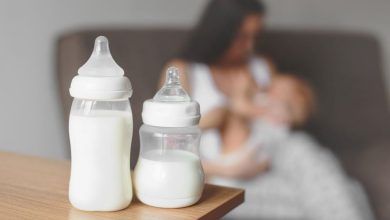
How To Avoid Falls And Stay Strong And Healthy As You Age
When it comes to senior health, there are few things more potentially dangerous than a slip and fall incident. Even a minor stumble can lead to severe health issues so it’s extremely important to prevent such accidents from taking place in and around the home.
Healthy aging is about knowing how to protect and nourish the body despite the natural breakdown that takes place for all of us as we get older. But when a senior falls over for any reason, the incident can have damaging, long-term effects that may not even reveal themselves until days or even weeks after the initial event.
There doesn’t need to be any immediate discomfort or pain after a fall to signal that a senior could be facing some serious health problems as a result. The impacts can be substantial, so much so that elderly adults could face mortal danger in the aftermath.
Avoiding falls is vital to the safety of seniors and the best way to prevent them from happening is to first understand why they occur. When you know the potential causes, you can better prepare your senior to navigate past these impacts to keep them healthy.
Seniors Helping Seniors Richmond KY understands that vision problems are among the most common causes for slip and fall accidents. When our eyesight starts to falter, that can pose significant challenges to navigating around the home, both indoors and out.
Medical issues can also have a major influence in the limitations that make it harder for seniors to remain mobile. Pain and discomfort will affect functionality while medications can cause side effects that might also cause seniors to lose their balance.
How You Can Get Involved
Working to keep seniors from falling down is a top priority for care-givers and stakeholders in the elderly adult’s well-being. If you detect any signs that a senior is in danger of falling to the ground, there are measures you should take to reduce these risks.
For many older adults the biggest potential dangers are found in the home and these possible perils may not have been a major threat previously. But with the impacts of aging such as failing eyesight and poor mobility, the home can become unsafe and pose substantial risks for trip and fall accidents.
Check the Home
In order to keep your senior safe and secure inside of their residence, you should do a full audit of the home and see if there are potential problems waiting to crop up. Check to be sure that furniture isn’t blocking major hallways or stairwells.
Rugs and carpets should be secured so that there are no loose edges that can stick up and trip a senior as he or she walks by or steps across the surface.
Bathrooms are a common slip and fall area of the house due to the wetness and moisture that comes from showers and tubs. Be sure there are no-slip mats placed in and out of the shower or tub and on the floors near the sink.
You may even want to install handrails near tubs or toilets to assist your senior in sitting or walking on or to these fixtures.
Brighter Lighting
Another culprit that leads to many slip and fall incidents is poor lighting in the home. Seniors who are already dealing with poor eyesight need to have more lighting to make each step a secure one and keeping them from falling over.
Bulbs of a higher wattage than normal will provide greater illumination in rooms, hallways, and common areas that see routine foot traffic by your senior.
Staying Strong and Healthy
Preventing a fall takes more than just rearranging the furniture and screwing in some 100 watt light bulbs. Seniors want to feel good and taking steps to improve their health is a major part of the equation. These are just some of the ways they can go about doing that:
Good Nutrition

Eating right is vital to a senior’s well-being. Good diet can help keep your senior from falling down. Not getting enough nutrients in the body can make you feel light-headed and negatively affect brain and body function.
Get Your Eyes Checked

It’s important to make sure your vision is working at peak performance and, if not, your senior should get corrective lenses in their glasses or contacts so they may be able to see properly. Prescriptions and need to be current and up to date. Frames should be comfortable and fit to the face without slipping or falling down the nose.




